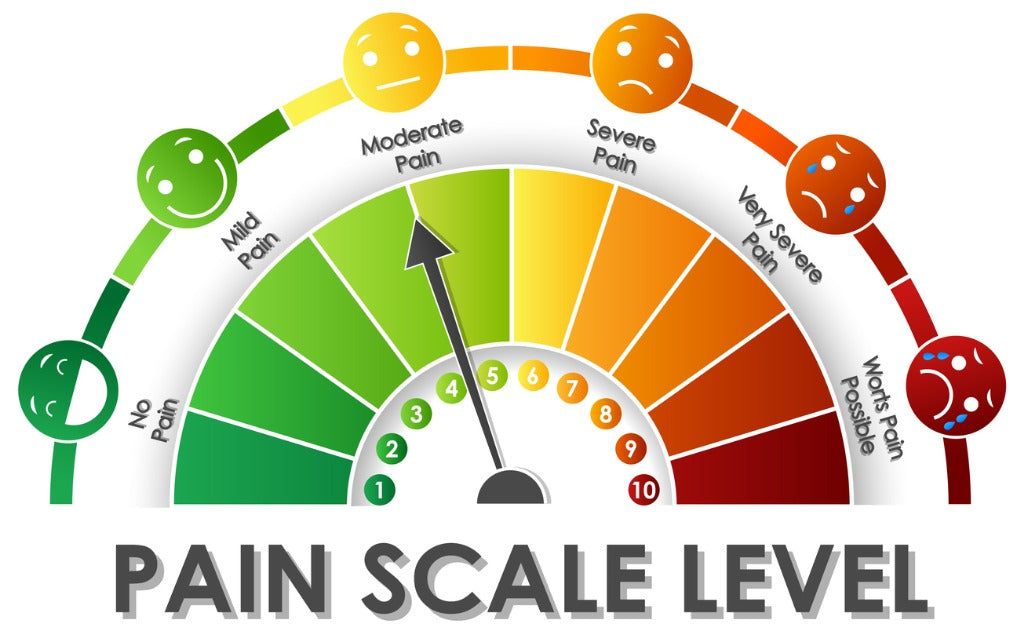Marijuana Use Among Americas Senior Citizens Rises
Introduction To The Rising Trend: Marijuana Use Among America's Senior Citizens
In recent years, according to the National Survey of Drug Use and Health there has been a notable shift in the perception and use of marijuana among America's senior citizens. Once stigmatized as a recreational drug associated with counterculture movements, marijuana is now experiencing a resurgence in popularity among older adults. This rising trend is sparking renewed interest in understanding why seniors are turning to cannabis and how it impacts their lives.
Historically, marijuana use was predominantly associated with younger generations seeking recreational highs or alternative medicinal treatments. However, as societal attitudes towards marijuana have evolved, so too have the demographics of its users.

A study conducted by the National Survey on Drug Use and Health found that marijuana consumption among adults aged 65 and older has more than tripled in the past decade. I (the author) am 71 and I have consumed cannabis for over half a century. I would never recommend starting out that young. I am an advocate of controlling it the same way liquor is controlled. But this is another story.
This increase in usage can be attributed to several factors. Firstly, changing legislation across various states has resulted in increased access to medical and recreational cannabis for seniors. As more states legalize its use, older adults are finding themselves more open to exploring its potential benefits. Additionally, growing evidence suggests that marijuana may offer numerous therapeutic effects for age-related ailments commonly experienced by seniors such as chronic pain, arthritis, insomnia, and anxiety.
With limited treatment options available for these conditions that often come with unwanted side effects or risks of addiction from traditional pharmaceuticals, many seniors are turning to cannabis as a potential alternative.
Factors Contributing To Increased Interest In Marijuana Among Seniors
As marijuana legalization continues to gain traction across the United States, an unexpected demographic has shown a growing interest in the drug - senior citizens. Several factors have contributed to this increased curiosity among older adults, signaling a significant shift in attitudes towards marijuana use. Firstly, seniors are becoming more open-minded about alternative medicine and exploring non-traditional treatment options for various health conditions.

With aging comes a host of age-related ailments such as chronic pain, arthritis, insomnia, and even symptoms associated with cancer or Parkinson's disease. Many seniors have found relief from these conditions through medical marijuana use, leading them to view it as a viable option. Secondly, there has been an increasing amount of research highlighting the potential therapeutic benefits of cannabis in treating age-related illnesses.

Scientific studies have shown that marijuana can alleviate chronic pain, reduce inflammation, improve sleep quality, and even aid in managing symptoms of neurodegenerative disorders. This mounting evidence has piqued the curiosity of many seniors who are looking for ways to improve their quality of life without relying solely on pharmaceutical medications. Additionally, changing societal perceptions surrounding marijuana have played a role in fostering increased interest among seniors.
As public opinion shifts towards greater acceptance and legalization becomes more widespread, older adults may feel less stigmatized about using cannabis for medicinal purposes.
Health Benefits Of Marijuana For Older Adults
The use of marijuana among older adults in the United States has witnessed a notable surge in recent years, and this increase is attributed to the numerous health benefits associated with the plant. Marijuana has been found to offer a range of advantages for older adults, particularly in managing various health conditions commonly experienced during the aging process. One significant benefit of marijuana for seniors is its potential as a pain reliever.
Chronic pain affects many older adults, and marijuana has been proven effective in alleviating discomfort associated with conditions such as arthritis, neuropathy, and multiple sclerosis. By reducing pain levels, marijuana can enhance seniors' overall quality of life and enable them to engage more actively in daily activities. Another advantage lies in marijuana's ability to combat insomnia and improve sleep quality. Insomnia is prevalent among older individuals due to factors like chronic pain or age-related sleep disorders.
The cannabinoids found in marijuana have shown promise in promoting relaxation and inducing sleep, leading to better rest patterns for seniors. Moreover, medical cannabis has demonstrated positive effects on mental health issues often faced by older adults. It can help alleviate symptoms of anxiety and depression, which are common conditions affecting seniors due to various life changes or medical conditions. By providing a natural alternative treatment option without severe side effects typically associated with pharmaceutical drugs, marijuana offers older adults a potentially safer solution for managing their mental well-being.
Challenges And Risks Associated With Marijuana Use In Older Populations
As marijuana use among senior citizens continues to rise, it is crucial to understand the challenges and risks associated with this trend. While marijuana has been legalized for medicinal and recreational purposes in several states, there are specific concerns when it comes to older adults. One of the main challenges is that older individuals may have underlying health conditions or be taking multiple medications.

Marijuana can interact with certain prescription drugs, potentially leading to adverse effects or reducing the effectiveness of these medications. Additionally, seniors may have a lower tolerance for psychoactive compounds present in marijuana, making them more susceptible to experiencing cognitive impairment, dizziness, or increased heart rate. Another risk factor is the potential for addiction or dependency on marijuana. Seniors may turn to marijuana for pain relief or as a means of coping with age-related issues such as insomnia or anxiety.The debate continues about the addictiveness of cannabis. I smoke it regularly and my two kids at home do not use cannabis. I quit using cannabis while my kids were growing up. Is is addictive. I say no but I am not a doctor. I have no credentials. I should see your doctor on this one.
However, prolonged use can lead to tolerance and withdrawal symptoms if use is abruptly discontinued. Moreover, there is limited research on the long-term effects of marijuana use among older populations. The lack of data makes it challenging for healthcare professionals to provide evidence-based guidance regarding dosage, frequency of use, and potential risks specific to this age group. In conclusion, while marijuana may offer therapeutic benefits for certain conditions among senior citizens, there are significant challenges and risks associated with its use in this population.
Demographic Analysis: Who Are The Senior Citizens Using Marijuana?
Demographic analysis: Who are the senior citizens using marijuana? As marijuana becomes increasingly legalized across the United States, an intriguing trend has emerged - a rise in marijuana use among America's senior citizens. This newfound interest in the drug has reignited discussions surrounding its potential benefits and drawbacks for older adults. To gain a better understanding of this phenomenon, a demographic analysis is crucial.
Firstly, it is important to note that not all senior citizens are embracing marijuana use. However, those who do tend to be from diverse backgrounds and experiences. Many seniors turning to cannabis are baby boomers, born between 1946 and 1964, who may have had prior exposure to recreational drug use during their younger years. Furthermore, research suggests that seniors using marijuana often suffer from age-related health conditions such as chronic pain, arthritis, insomnia, or anxiety.
By using cannabis as an alternative therapy or supplementing their existing medications with it, these individuals seek relief from their ailments. Additionally, gender seems to play a role in this demographic group's engagement with marijuana. Studies indicate that men are more likely than women to consume cannabis recreationally or medicinally. However, it is essential not to overlook the growing number of women seniors who are also exploring its potential benefits.
Moreover, geography can influence marijuana use among senior citizens as well.
The Role Of Changing Legislation In The Rise Of Senior Marijuana Use
One significant factor contributing to the rise in marijuana use among America's senior citizens is the changing landscape of legislation surrounding the drug. Over the past decade, several states have legalized or decriminalized marijuana for medicinal and even recreational purposes, making it more accessible to individuals across all age groups.
The legalization movement has helped eliminate the stigma previously associated with marijuana use, especially among older adults who may have grown up during a time when it was widely demonized. With more states recognizing the potential benefits of cannabis for various health conditions, seniors are increasingly open to exploring its therapeutic properties.
In addition to legalization, medical professionals have become more accepting of marijuana as a viable treatment option for age-related ailments. As doctors and researchers continue to uncover potential benefits such as pain relief, improved sleep, and reduced anxiety, seniors are now seeking out medical advice on incorporating cannabis into their wellness routines.

Furthermore, changing legislation has facilitated increased access to dispensaries and specialized products tailored specifically for older adults. This accessibility allows seniors to obtain safe and reliable sources of cannabis products that cater to their unique needs.
Overall, changing legislation has played a crucial role in destigmatizing marijuana use among senior citizens. By expanding legal access and promoting its potential health benefits through medical professionals' acceptance, older adults are embracing cannabis as a viable alternative for managing various age-related conditions.
Cultural Shifts And Changing Attitudes Towards Marijuana Among Seniors
Over the past few decades, there has been a noticeable cultural shift and changing attitudes towards marijuana among America's senior citizens. Traditionally, older adults have been more conservative when it comes to drug use, but recent trends suggest that this perception is evolving.
One of the key factors contributing to this shift is the changing legal landscape surrounding marijuana. With an increasing number of states legalizing both medical and recreational use, seniors are becoming more open to exploring the potential benefits of cannabis. This change in legislation has also brought about a greater acceptance and understanding of marijuana within society.
Moreover, as baby boomers reach retirement age, they bring with them a generational mindset that is more inclined to question societal norms and experiment with alternative therapies. Many seniors are turning to marijuana as a means of managing chronic pain, reducing symptoms associated with various medical conditions such as arthritis or cancer treatments, or even improving their overall quality of life. And of course a lot of baby boomers just like to get high.
Additionally, advancements in technology have made it easier for seniors to access information about cannabis and its potential benefits. Online resources provide educational materials and testimonials from other seniors who have experienced positive outcomes from using marijuana.
As these cultural shifts continue to unfold, it is important for society to adapt by providing appropriate education and support for seniors who wish to explore cannabis as an option for their health needs.
Exploring Alternative Methods Of Cannabis Consumption For Older Adults
As marijuana use becomes more prevalent among senior citizens in the United States, there is a growing interest in exploring alternative methods of cannabis consumption that cater specifically to the needs and preferences of older adults. While traditional smoking methods may not be suitable or appealing to this demographic, innovative options are emerging to provide a safer and more comfortable experience.
One such method gaining popularity is the use of edibles. Edibles are cannabis-infused products that can be consumed orally, such as gummies, chocolates, or baked goods. This form of consumption eliminates the need for smoking or vaping and offers a discreet way for seniors to enjoy the benefits of marijuana without any potential lung irritation. Additionally, topical applications are gaining recognition as an alternative method for older adults seeking relief from localized pain or inflammation.

Cannabis-infused lotions, balms, and creams can be applied directly to specific areas of discomfort, providing targeted relief without any psychoactive effects. Another option worth exploring is microdosing. This technique involves consuming small amounts of cannabis throughout the day to achieve subtle therapeutic effects while minimizing any potential intoxication. Microdosing allows seniors to maintain clarity and functionality while still benefiting from cannabis's medicinal properties.
Moreover, advancements in technology have led to the development of vaporizers specifically designed for medical marijuana use.
Conclusion: The Future Of Marijuana Use Among America's Senior Citizens
As the interest in marijuana among America's senior citizens continues to rise, it is clear that the stigma surrounding its use is gradually fading away. With more states legalizing both medical and recreational cannabis, this trend is expected to continue in the coming years. The growing body of scientific research highlighting the potential health benefits and therapeutic properties of marijuana has played a significant role in changing perceptions.
The increasing acceptance of marijuana among seniors can be attributed to its potential for managing various age-related health conditions such as chronic pain, arthritis, insomnia, and anxiety. As baby boomers continue to enter their golden years, they are seeking alternative treatment options that are safer and more natural than traditional pharmaceuticals. Moreover, the social aspect of marijuana use cannot be overlooked.
Many seniors are finding comfort and companionship through joining cannabis communities or attending cannabis-friendly events. This sense of camaraderie helps combat feelings of isolation or loneliness that often accompany aging. However, it is important to ensure that adequate education and resources are available for older adults who wish to incorporate marijuana into their wellness routines. Healthcare providers should receive proper training on cannabis-related topics so they can provide accurate information and guidance to their patients.
In conclusion, the future of marijuana use among America's senior citizens looks promising.





